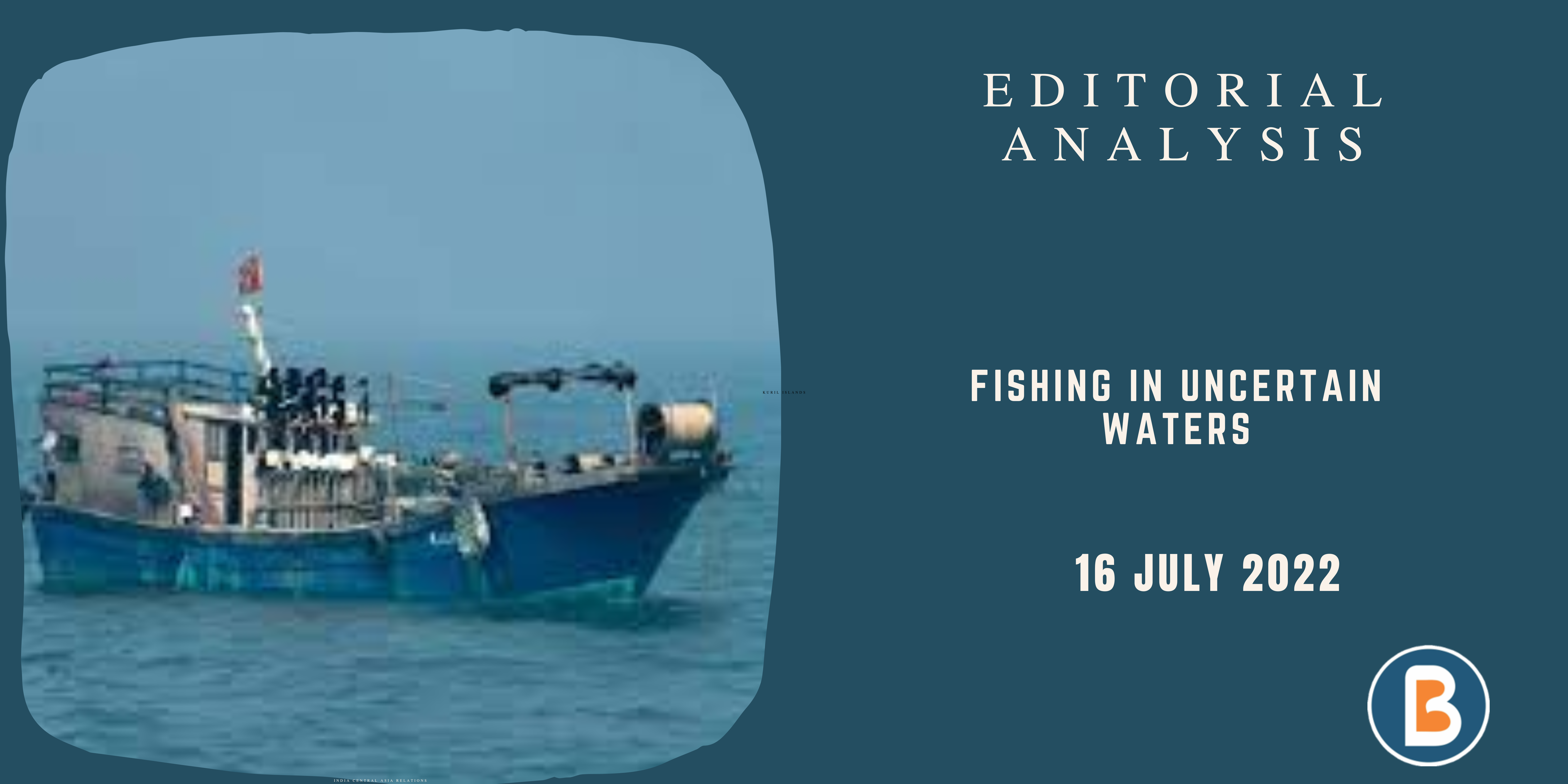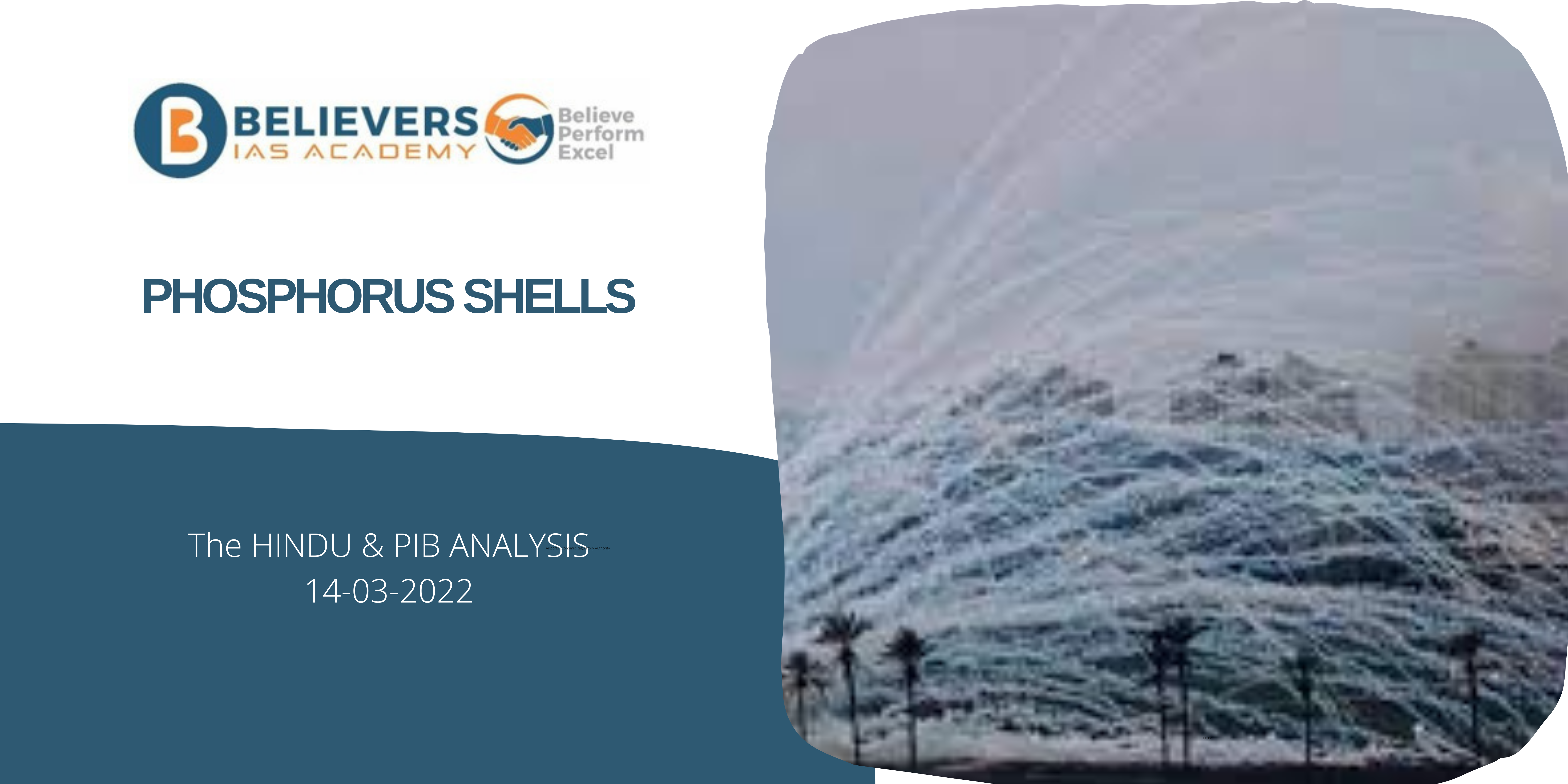Fishing in Uncertain Waters
For Prelims
What is Trawling?
- Trawling is one of the most common methods of fishing. Trawl nets are designed to be towed by a boat through the water column (midwater trawl) or along the sea floor (bottom trawl).
- Minimum Legal Size (MLS): The size at which a particular species can be caught legally.
For Mains
What is currently happening?
- The number of fishes available in the territorial waters are dwindling which is exacerbating poverty among the traditional fishermen.
The issue for traditional fishermen?
- Every year, Kerala imposes a trawling ban during the monsoon season to ensure the prosperity of the marine stock. Only traditional crafts are allowed to operate during the period of the ban, which lasts for 52 days from June 9 to July 31.
- However even with the lack of competition from mechanised boats, traditional fishermen are finding it harder to catch sufficient number of fishes.
- Kerala has around 40,000 traditional crafts and lakhs of families are dependent on the sector for their livelihood.
- They also lack adequate storage facilities and hence cannot always afford to get a fair price.
Issues of mechanised trawlers
- Increasing fuel prices increase the cost of operation for the trawlers.
- The trawl bans and COVID-19 had kept trawlers off waters for over four months in 2020.
- More than 500 boats have been scrapped across Kerala in the last couple of years.
- The fisheries sector in Kerala offers livelihood to nearly 15 lakh families and our catch is worth ₹40,000 crore every year.
How critical is the issue?
- According to the Central Marine Fisheries Research Institute the Kerala coast saw a massive fall in oil sardine catch in 2021, registering a drop of 75% compared to 2020.
- The annual value of sardine in the landing centres dropped to ₹30 crore from ₹608 crore in 2014.
- Though the State recorded an increase in total marine catch in 2021 compared to the previous year, experts believe that since in 2020, fishermen had lost many fishing days due to pandemic-related restrictions and cyclone warnings, a comparison does not make sense as 2020 was an exceptionally lean period.
What are the causes?
- Climate change is one of the major reasons for the change since, when ocean warming increases, the fish shoals move northwards or they dive deeper.
- Extreme climate events are also changing the fishing calendar. The increasing presence of cyclones and low-pressure areas in the Arabian Sea is another threat.
- While the number of cyclones has increased by 52% in the Arabian Sea, the time they spend over the sea has increased by 80% (between 2001 and 2019).
- They are also forced to collect even juvenile fishes which have not yet reached reproductive age and are smaller than Minimum Legal Size.
- This in turn results in fall in the number of fishes for next season, and the cycle repeats.
Source The Hindu
For more updates, Click Here




